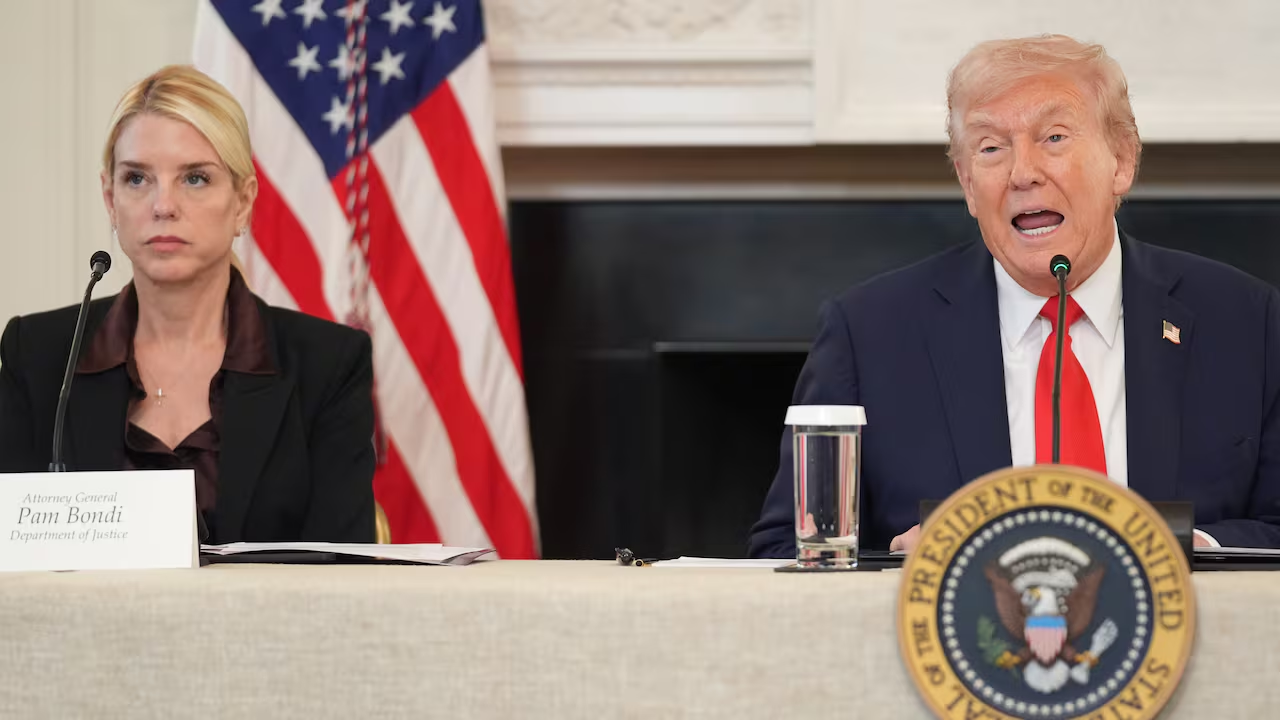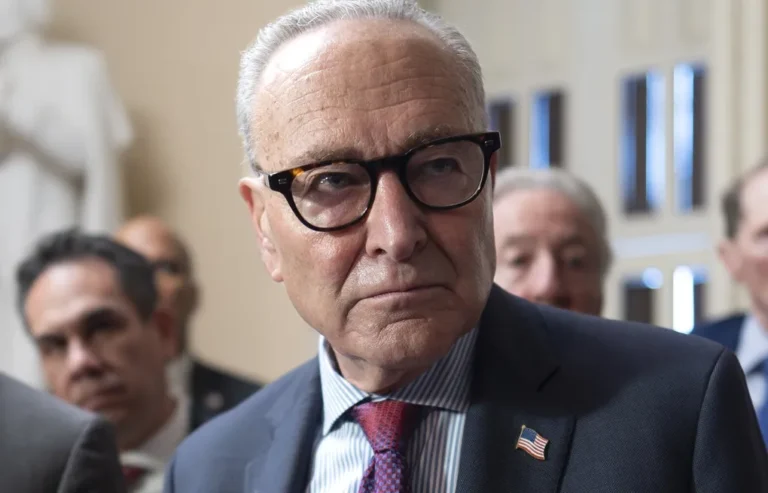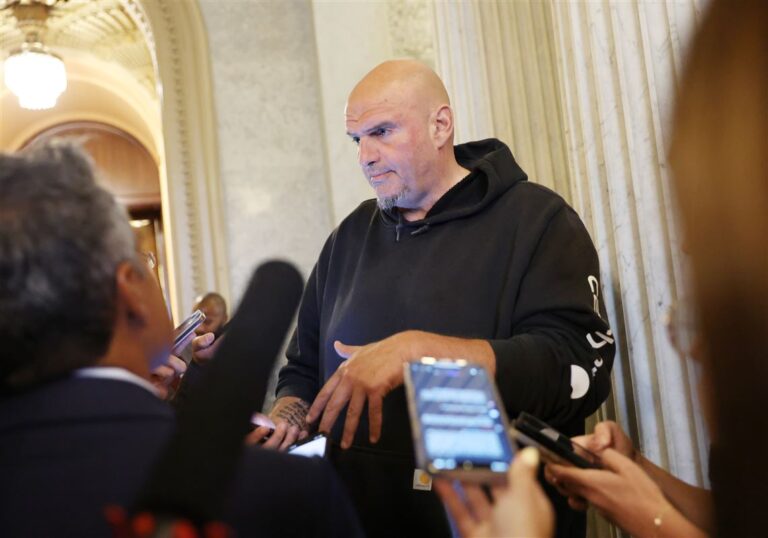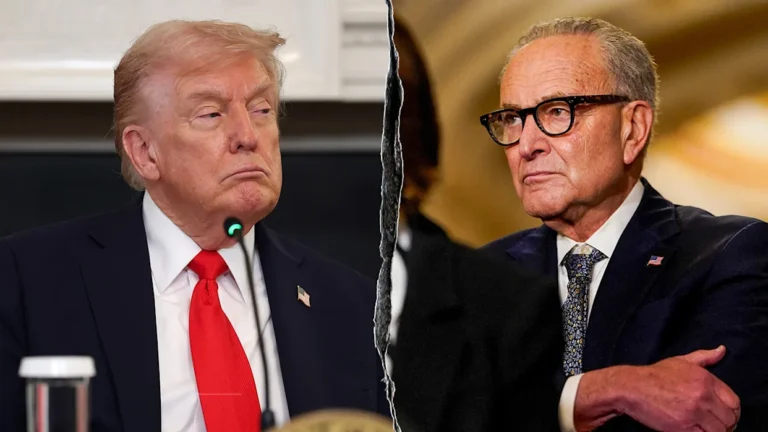Trump Signals New Terror Designation for Antifa After White House Violence Roundtable
President Donald Trump signaled his intent to take unprecedented action against the far-left militant network known as Antifa, declaring during a White House roundtable discussion that he is preparing to formally designate the black bloc group as a foreign terrorist organization.
The move, which would expand the government’s ability to prosecute individuals affiliated with or supporting Antifa, represents one of the most aggressive domestic security steps of Trump’s second term and a defining escalation in his administration’s crackdown on what it calls “organized left-wing extremism.
”The announcement followed a high-profile meeting in the White House on Wednesday, where Trump and Attorney General Pam Bondi hosted a panel of journalists, researchers, and victims of Antifa-related violence.
Among the attendees were conservative reporters Nick Sortor and Andy Ngo, both of whom have become prominent figures in documenting the group’s activities.

Ngo, who suffered a traumatic brain injury after being attacked by Antifa militants in Portland in 2019, has long been one of the most visible chroniclers of black bloc extremism in the Pacific Northwest.Trump praised the panelists for their persistence in exposing what he described as “a coordinated campaign of domestic chaos.”
“I think it’s the kind of thing I’d like to do,” the president said when asked about officially labeling the group as a foreign terrorist organization. Turning toward Secretary of State Marco Rubio, Trump added, “Does everybody agree? If you agree, I agree. Let’s get it done.
”If the administration follows through, the foreign terrorist organization (FTO) label would be among the most far-reaching legal tools ever applied to a domestic-rooted movement.Under Section 219 of the Immigration and Nationality Act, providing “material support or resources” to a designated FTO is a federal crime, carrying penalties of up to 20 years in prison.
The designation has previously been applied to groups such as Hamas, al Qaeda, and the Irish Republican Army.
Extending that framework to Antifa would mark the first time the U.S. government has used the FTO label on a loose network with active American participants.For Trump and his supporters, the decision reflects a broader attempt to equate Antifa’s militant tactics with international terrorism.The president has long accused the group of instigating political violence, particularly during protests that erupted in the wake of the 2020 Black Lives Matter movement.
“What we are seeing is not protest,” Trump said earlier this year. “It’s an assault on the foundations of our country.”Antifa — short for “antifascist” — operates through decentralized black bloc cells across major U.S. cities.Members typically dress in black clothing and masks, using anonymity to conceal identities during protests.While supporters insist that Antifa is not a formal organization but rather a shared ideology, local groups coordinate closely, using similar flags and slogans while engaging in direct-action tactics that have frequently escalated into violence.The group’s roots stretch back decades, but it became a national focus during the Trump presidency, especially after numerous riots in Portland and Seattle.
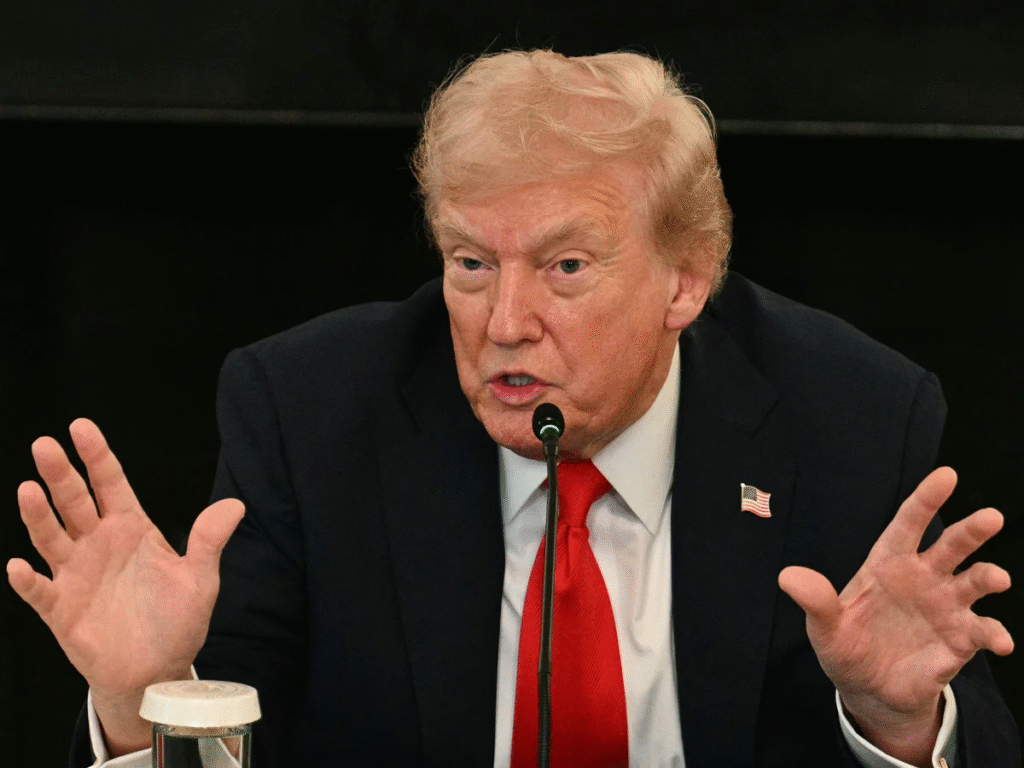
Dozens of self-identified Antifa members were arrested between 2020 and 2021 for vandalism, arson, and assaults on law enforcement.Federal prosecutors charged several with attempting to burn down federal courthouses and police precincts.One Antifa supporter was also implicated in the shooting death of a pro-Trump demonstrator in August 2020, an incident that further polarized the country.
At Wednesday’s meeting, Trump framed the new designation as a natural evolution of his administration’s earlier anti-terror directives.“We’ve been talking about this for years,” he said. “Now we have the evidence, we have the stories, and we have the victims right here.”Attorney General Bondi emphasized that a formal FTO designation would significantly strengthen the Department of Justice’s ability to target not just violent actors but also financiers, online propagandists, and organizers abroad.
“This is not simply about individuals throwing Molotov cocktails,” Bondi said. “It’s about international coordination — the funding, the recruitment, and the ideological indoctrination that crosses borders.”According to officials briefed on the proposal, the White House intends to justify the “foreign” element of the designation by linking Antifa’s U.S. activities to its European network.
The administration argues that many of the tactics and symbols used in American Antifa chapters originated in Western Europe, where militant antifascist groups have been active for decades. In recent years, those groups have grown increasingly violent.In Italy, approximately 150 Antifa members attacked police and attempted to storm the First European Remigration Summit in Milan earlier this year, hurling projectiles and lighting fires.
In Germany and Hungary, black bloc cells were accused of using hammers and metal pipes to carry out ambushes against political opponents, leaving multiple victims hospitalized.In France, Antifa-aligned rioters have repeatedly clashed with police during demonstrations over economic and immigration policies.These incidents, administration officials say, demonstrate that Antifa functions as a transnational network rather than an isolated domestic movement.

“They fly the same flag, they wear the same masks, they use the same signals — that’s not coincidence,” one senior aide said privately. “That’s coordination.”Supporters of the plan argue that the designation will close a long-standing legal gap.By classifying Antifa as a foreign terrorist organization, law enforcement could pursue both domestic participants and any individuals or entities abroad who provide support.“When people in Europe send money, training materials, or encrypted communications to black bloc groups here, that’s international terrorism,” said one Justice Department official.Critics, however, warn that such a move would blur the line between domestic dissent and terrorism, setting a dangerous precedent.Civil liberties groups argue that Antifa, while often violent, is not a single organization but a collection of ideologically linked movements.Labeling it as a foreign terrorist group, they contend, risks criminalizing political expression and protest.Human rights advocates have also raised questions about the international implications of the decision.
If the State Department designates Antifa as an FTO, foreign governments could be encouraged to do the same, potentially targeting local activists or journalists under the guise of counterterrorism.European watchdogs have already voiced concerns that the label could be used to justify harsher crackdowns on political opponents.
Nevertheless, Trump appears undeterred. During the roundtable, he expressed confidence that the American public would support his decision.“People are tired of seeing their cities destroyed, their police attacked, their monuments defaced,” he said. “This isn’t free speech — it’s terror. And we’re going to treat it that way.”The discussion at the White House also touched on the growing international debate about Antifa’s influence.
Nick Sortor, who was arrested in Portland while reporting on protests earlier this year, told the president that law enforcement officials in liberal cities have been hesitant to prosecute Antifa members for fear of political backlash.
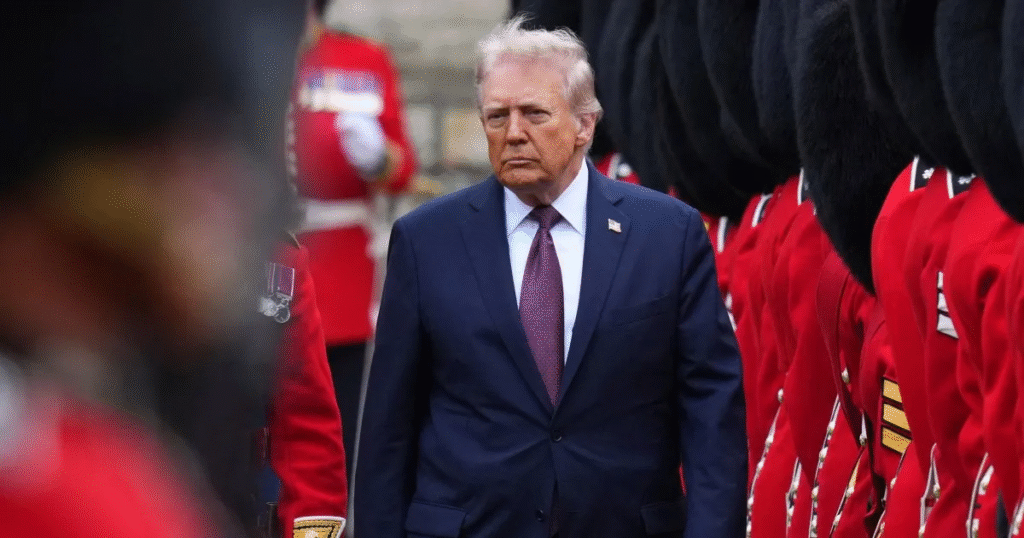
“They act with impunity,” Sortor said. “They think they’re untouchable.”Andy Ngo, whose investigations have traced Antifa’s networks across the United States and Europe, described the movement as “highly organized and ideologically disciplined.”He thanked the president for addressing the issue directly. “For too long, these groups have terrorized journalists, conservatives, and everyday citizens under the banner of antifascism,” Ngo said. “Finally, someone is willing to call it what it is.”The president nodded in agreement, reiterating his intention to move swiftly. “We’ll have something formal soon,” he promised. “We’ve been very patient, but the time for patience is over.
”The proposal is expected to move through the State Department in coordination with the Departments of Justice and Homeland Security.
If approved, the designation could take effect within weeks, triggering new prosecutorial powers and financial sanctions.Globally, the move could align the United States with recent actions taken by several European governments.
On September 18, the Dutch parliament passed a motion from opposition leader Geert Wilders urging the Netherlands to classify Antifa as a terrorist organization, citing violent threats against politicians and journalists.Similar debates are underway in Germany, Austria, and the United Kingdom, where far-left violence has increasingly been treated as an organized threat.As Trump concluded the roundtable, his tone was both resolute and defiant. “We are a nation of laws, not mobs,” he said.
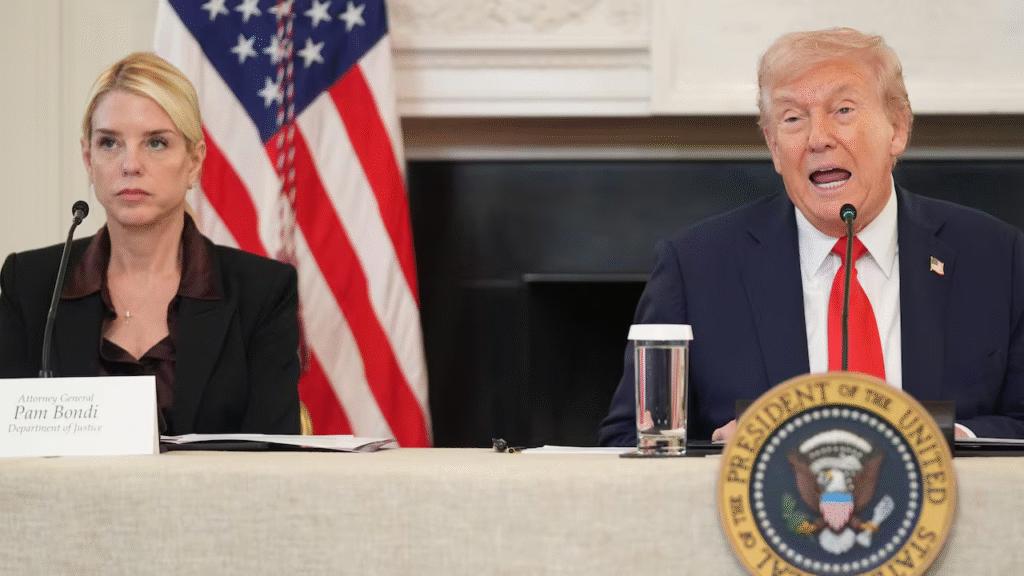
“And anyone who hides behind masks and violence to silence others will face the full force of the American government.”If carried out, Trump’s directive would mark a turning point in how the United States confronts political extremism.It would also redefine the boundaries of counterterrorism law, extending its reach into the volatile realm of domestic activism and ideological conflict.
For Trump’s allies, the move is a long-overdue act of courage against a violent subculture they believe has undermined public order.For opponents, it is a chilling expansion of executive power that risks criminalizing dissent.Either way, the decision will have consequences far beyond the walls of the White House.In the president’s words, “If you agree, I agree. Let’s get it done.”

